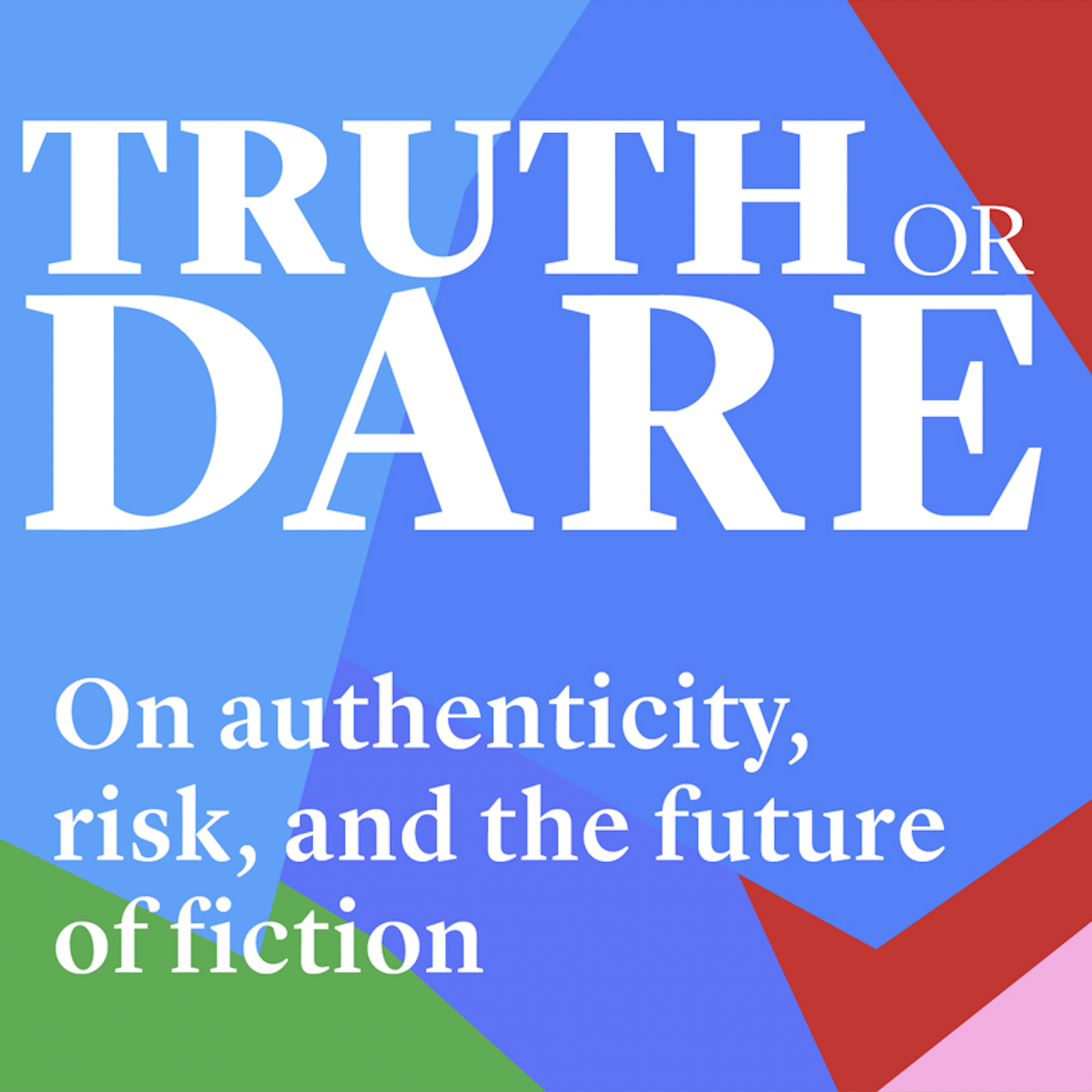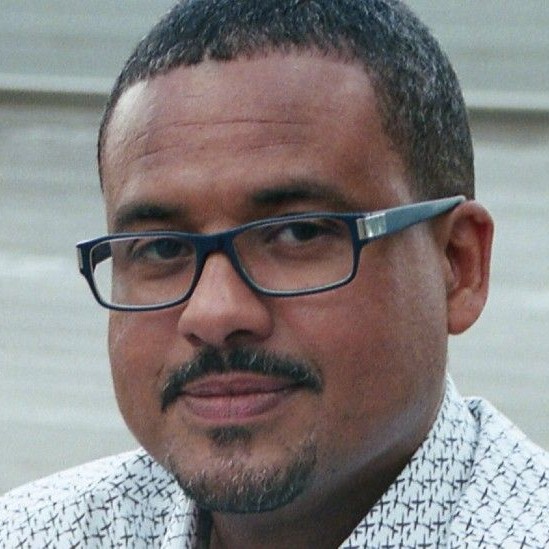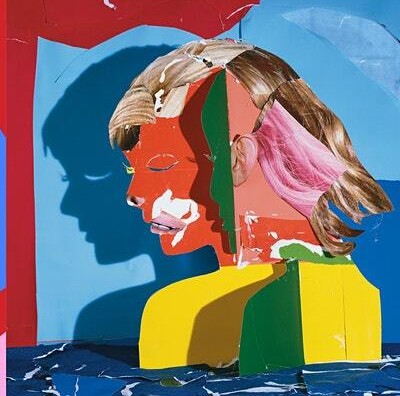Austrian poet Friederike Mayröcker has died at the age of ninety-six. Writing for the Poetry Foundation last year, Ryan Ruby gave an insightful overview of Mayröcker’s life and work. Born in Vienna in 1924, Mayröcker has written well over one hundred books, with only a small fraction of those available in English translation. Earlier this year, the Paris Review published an excerpt from The Communicating Vessels, published by Public Space Books. At the New York Times, Alexandra Alter and Jennifer Schuessler report on what will become of Philip Roth’s private archive. In the weeks since Blake Bailey, Roth’s sole
David Diop According to Politico, editorial employees of The Atlantic are unionizing with the NewsGuild of New York. The union wants to institute a compensation floor of $60,000, healthcare, a flexible time-off policy, and twenty weeks of paid parental leave. McKay Coppins reports on the difficulty conservative book publishers are having with Joe Biden as president, writing that the market for anti-Biden books is “ice cold.” David Diop’s novel At Night All Blood Is Black, translated by Anna Moschovakis, has won the International Booker Prize. For more on Diop, see this profile from May. CNN Business reports on the
Pamela Sneed. Photo: Patricia Silva The winners of the 2021 Lambda Literary Awards were announced last night. Among the awardees are Jenn Shapland in the Lesbian Memoir/Biography catagory for My Autobiography of Carson McCullors, Pamela Sneed in Lesbian Poetry for Funeral Diva, and Zeyn Joukhadar in Transgender Fiction for The Thirty Names of Night. In addition, special honors were given to Sarah Gerard, Brontez Purnell, T Kira Madden, and others. At the London Review of Books, Joanne O’Leary writes about Mabel Loomis Todd and her daughter, Millicent Todd Bingham. Mabel Loomis Todd had an affair with Emily Dickinson’s brother
Join us tonight at 7pm EDT to celebrate the release of our new issue. For “Truth or Dare: On Authenticity, Risk, and the Future of Fiction,” Lauren Oyler, Ed Park, Omari Weekes, and Jo Livingstone will discuss risks writers should take now, books that demonstrate innovative approaches to authenticity, comedy, irony, sincerity, and more. The event is free; please RSVP here. At LitHub, Rachel Kushner talks to Franciso Goldman about his new novel, Monkey Boy. For the New Yorker, Victor Luckerson writes about Mary E. Jones Parrish and Eddie Faye Gates, two Black women authors who told the story
Kevin Young. Photo: Melanie Dunea New York Times critic Jennifer Szalai reviews Scott Ellsworth’s The Ground Breaking, a new history of the Tulsa Massacre. The massacre took place in 1921, when white mobs killed the Black inhabitants of an entire block in the city’s Greenwood district and demolished their homes. Ellsworth details how the story has been covered up and suppressed; “Where the history of the massacre wasn’t obscured, [Ellsworth] found it distorted, deformed by conspiracy theories or attempts to both-sides it,” Szalai writes. Poet and director of the Smithsonian’s National Museum of African American History and Culture Kevin
Rosa Brooks Eric Carle, the picture-book author with more than seventy titles to his name, has died at the age of ninety-one. According to the New York Times, Carle sold more than 170 million copies of his books. In a 1995 interview, he talked about how he turns small ideas into full-fledged works: “You think about it, you forget about it, you obsess about it. I get depressed a lot, and that seems to precipitate things. My wife sees my mood darken and says, ‘Uh-oh, you’re ready to do a book.’” In the same article, Carle observes how he
Roxane Gay Roxane Gay is starting an imprint with Grove Atlantic. Roxane Gay Books will publish three books per year, focusing on underrepresented voices. Gay told the Times that she will be accepting submissions this summer from writers with or without agents: “There are so many barriers and so many gates. Let’s take them down.” Grove is also starting a paid one-year fellowship program, a “crash course” in publishing open to applicants outside traditional publishing circles. Faculty leaders from the University of North Carolina at Chapel Hill are urging their board of trustees to vote on Nikole Hannah-Jones’s tenure
Zakiya Dalila Harris. Photo: © Nicole Mondestin Photography. The New York Times profiles Zakiya Dalila Harris, the author of The Other Black Girl, based in part on Harris’s experiences working in publishing. The book, which is also being developed as a TV series for Hulu, started a bidding war with fourteen publishers vying for the title. Harris says she was inspired by Jordan Peele’s Get Out: “Talking about white liberals in this way seemed so new to me at the time, and I really wanted to do something similar with the book.” This fall, Haymarket Books will publish a
Kerry Howley Kerry Howley—author of Thrown, about the time she spent among mixed martial artists—is joining New York magazine as a features writer. New York has also hired Justin Miller as its new news director and Ryu Spaeth (currently at the New Republic) as a deputy editor. Khadija Abdalla Bajaber’s The House of Rust, which won the first Graywolf Africa Prize, is scheduled for publication in October. Doubleday has signed a two-book deal with Stacey Abrams. Both of the forthcoming books are political thrillers featuring the character Avery Keene, the hero of Abrams’s best-seller While Justice Sleeps (also Doubleday).
Rumaan Alam For The Nation, Chalay Chalermkraivuth interviews Pop Song author Larissa Pham about desire, survivorship, and the importance of vulnerability to her writing. Pham sees the rise in defensive posturing in criticism and on social media—“a relatively recent phenomenon”—as a sign that stakes are missing from the argument. “Stakes are what make you care about something. They are what allow you to know what people value. So showing my stakes is what I can do to push back against that.” Jewish Currents assistant editor Joshua Leifer is writing a book on “the state of American Jewish identity as
Valeria Luiselli. Photo: Diego Berruecos Valeria Luiselli’s Lost Children Archive has won the Dublin Literary Award. The winner is selected from a group of books nominated by libraries around the world. Luiselli’s novel was chosen by a library in Barcelona, and the author said of the institution, “I’m going to kiss its rocks one day, because I probably won’t be able to kiss its librarians because of Covid.” Samir Mansour Bookshop, a bookstore and library in Gaza, was bombed in an Israeli airstrike on Tuesday. n+1 has posted a 2016 diary by Rachel Kushner that she wrote during a
Raven Leilani. Photo: Nina Subin For the Oxford Review of Books, Alex Chasteen pairs Raven Leilani’s Luster and Torrey Peters’s Detransition, Baby in a review discussing how, taken together, these novels suggest “a sort of unified theory of dissociation, linking together social marginalisation (as understood through transness, Blackness) with sex and violence as ways of coming into or leaving a body you’ve been alienated from.” Viking will publish a final novel by the late spy novelist John le Carré: Silverview will be released in October. “This is the authentic le Carré, telling one more story,” said the writer’s youngest
Stephen Dixon At LitHub, an essay on the late writer Stephen Dixon, who died in 2019. Courtney Zoffness remembers Dixon as a teacher at Johns Hopkins University Writing Seminars, a caring, authentic presence who students could hear banging away on a manual typewriter. Writing about Dixon’s work—he was extremely prolific, with nearly seven-hundred short stories and thirty-five books—Zoffness observes, “Steve has a distinct, frenetic, unsentimental writing style, one attuned to the humdrum of daily life. His characters are profoundly humane.” The new issue of McSweeney’s has more on Dixon, including four previously unpublished stories and an essay on the
Still from “The Underground Railroad,” © Amazon Studios. Photo: Kyle Kaplan. Molly Jong-Fast—an editor at large at the Daily Beast and cohost of The New Abnormal podcast—has sold her book The Last Good Day to Simon Schuster for a reported six figures. According to the publisher, the book examines how trends in the 1990s set the stage for the political clashes and inequality of the present, illustrates “how technological innovation outpaced our ability to regulate it,” and “how government policies fanned the flames of war and cultural division no one could yet fathom.” Jhumpa Lahiri and Princeton classics professor
Jacqueline Rose. Photo: Mia Rose Muumuu House had published a collection of remembrances of Giancarlo DiTrapano, founder of Tyrant Books and New York Tyrant magazine, who died six weeks ago. Parul Sehgal considers Jacqueline Rose’s new book, On Violence and Violence Against Women, for the New York Times. In essays reflecting on Harvey Weinstein, sexual harassment, Anna Burns’s Milkman, and Trump’s “Global Gag Rule,” Rose examines “how violence first takes root in the mind” and how it perpetrates “a theft of mental freedom.” The new issue of Columbia Journalism Review has been released in a digital edition, “What Is
Kavita Bedford. Photo: © Christopher Woe For the New Yorker, Lauren Michele Jackson considers Richard Wright’s The Man Who Lived Underground, newly published in full by the Library of America. Jackson notes that the novel “tickles audiences’ appetite for that which feels both timely and, at the same time, transhistorical.” She continues: “In marketing the book’s theme of police violence, the shepherds of the new Library of America edition may be inadvertently reinforcing an old dynamic between readers and Wright, which is a version of the dynamic that plagues readers and Black writers more broadly—namely, that any interest in
Brandon Taylor. Photo: Bill Adams Brandon Taylor, author of the novel Real Life, writes about fiction, reception, and subjectivity, and the “difference between writing about life as a black writer and writing about black life as a black writer.” Reflecting on how his fiction has changed, and looking back at his own early stories, Taylor writes, “I was substituting white subjectivity for my own particular subjectivity and calling it black subjectivity. I was an object in my own mind.” The goal, for Taylor, is to be read as “one person grappling with the difficulty of trying to express.” Publishers
Samuel R. Delany In “Why I Write,” at the Yale Review, the pioneering author and critic Samuel R. Delany explains his lifelong engagement with the torturous profession. Of his early years, Delany observes, “I wrote because I began to realize (to borrow William Blake’s words from Proverbs of Hell), ‘Eternity is in love with the productions of time.’ It keeps producing them—and it keeps destroying them.” Versha Sharma has been announced as the new editor of Teen Vogue. Sharma was previously the managing editor at NowThis. The hire comes after the previous editor, Alexi McCammond, resigned after an outcry
Toni Morrison. Photo: Timothy Greenfield Sanders. Knopf/Doubleday At n+1, Tobi Haslett has a powerful essay reflecting on and remembering the uprising in response to the murder of George Floyd, an uprising that is already being played down and repurposed in the media and in national politics. “At the DNC last fall we saw how the uprising may be remembered: a sunny, noble blur of soaring rhetoric and ‘peaceful’ crowds—a fabulous alternative to the rawness on the ground. But certain facts remain; some things can’t be wished away. Too much was born and broken amid the smoke and screams. The
Jhumpa Lahiri. Photo: Elena Seibert Eileen Myles considers a new book published by Mack that pairs the photographs of Moyra Davey with those of the late Peter Hujar. Writing about Hujar’s 1978 photo, Wave-Sperlonga, Myles observes: “I look at his oily dark surface, his haptic black sea I don’t think ‘immersive’ like Moyra’s. It’s the Hudson in the seventies. Dirty as fuck.” For Defector, The Believer’s features editor Camille Bromley discusses the LA Times’s flawed framing of a story that downplayed the harm done by former Believer editor in chief Joshua Wolf Shenk when he exposed himself during an



















